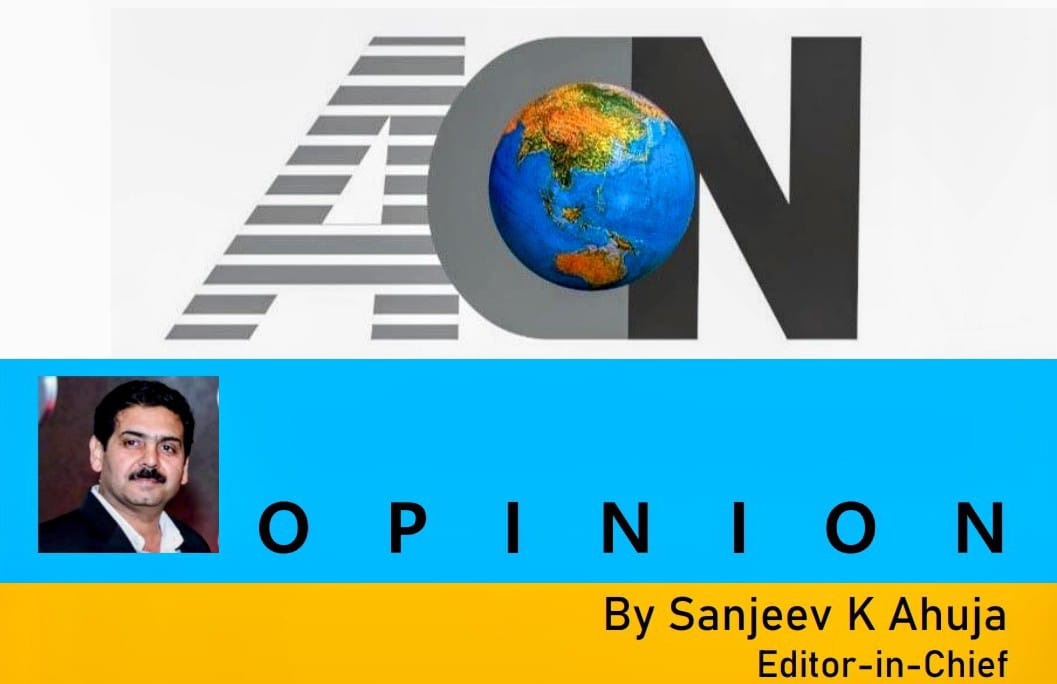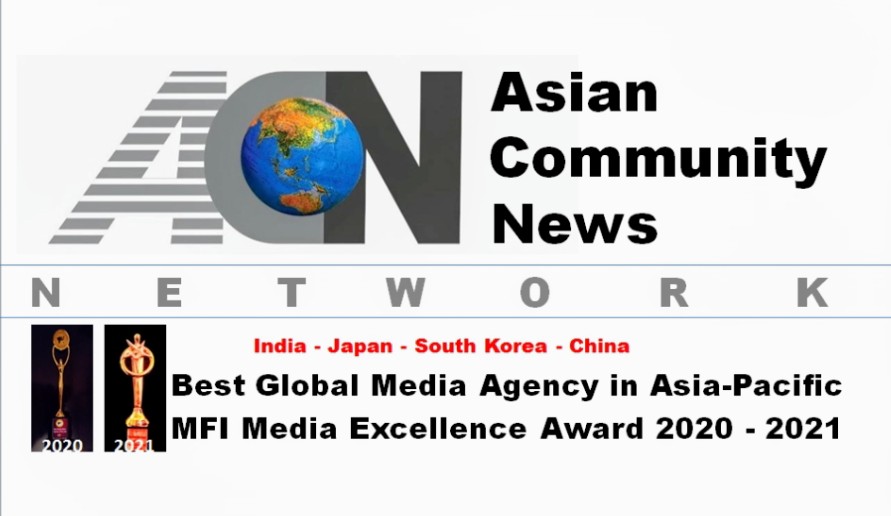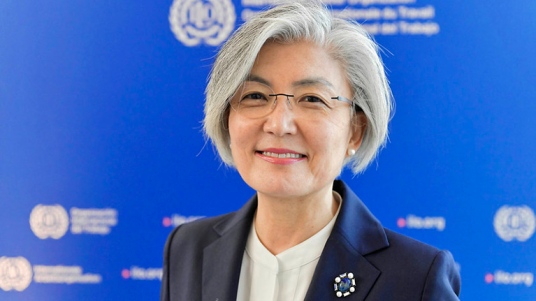Will the South Korean candidate Kang Kyung-wha with out of box approach emerge as new ILO chief?
ILO has never been headed by any woman in its 100-year history. Also, the position of DG has been held either by the US or a European person, except for 13 years when Juan Somavia of Chile was the director-general.
ACN OPINION:
As the long-drawn process of the election of the new Director-General of the International Labour Organization (ILO) nears an end and enters its final round with the election ballot taking place on March 25 to replace the British Guy Ryder, the world wonders whether it’ll spring a surprise and offer much-deserved representation to an Asian candidate, a woman.
As the established world order crumbles with the Covid pandemic forcing us to think out-of-box and become more innovative in all spheres of life, ILO – the only tripartite agency of the UN, is no exception to this experiment.
The three constituent voters groups deciding the fate of the five contesting candidates, the governments, worker’s and employer’s organizations from each of ILO 187 member states, own a crucial responsibility of thinking beyond conventional lines, and hand over reins to the promising woman candidate from South Korea – Kang Kyung-wha, the former foreign minister.
Among the five candidates vying for the top job, Ms. Kang comes with a very wide experience spanning across many streams in the field of human rights, disaster recovery, labor issues and diplomacy, and international affairs that make for a formidable blend of her global outlook. She is known for her out of box approach in addressing evolving issues.
During her time as Foreign Minister, she was instrumental in the unionization of the administrative staff in the ministry’s overseas missions, and she oversaw the first collective bargaining with the union.
Its mention-worthy here that ILO has never been headed by any woman in its 100-year history. Also, the position of DG has been held either by the US or a European person, except for 13 years when Juan Somavia of Chile was the director-general.
The five candidates for the post, in order of their presentations, are Gilbert Houngbo of Togo, Kang Kyung-wha of the Republic of Korea, Mthunzi Mdwaba of South Africa, Greg Vines of Australia, and Muriel Pénicaud of France.
The first public dialogues with candidates for the post of Director-General of the International Labour Organization (ILO) were held on January 20-21. Following the dialogues, the next stage in the election process was candidate hearings conducted in private by the ILO’s Governing Body at the start of its March 2022 Session on 14 March. The election ballot will take place on 25 March and the result made public. The new Director-General’s term will begin on 1 October 2022. The current Director-General, Guy Ryder, from the United Kingdom, has held office since 2012.
 But this time on, it should be all about Asia. It’s widely known that the 21st century belongs to Asia, which is all set to be the fulcrum of global activities in this century with the nations like India, China, Japan, and South Korea poised to play a pivotal role in shaping the new world order.
But this time on, it should be all about Asia. It’s widely known that the 21st century belongs to Asia, which is all set to be the fulcrum of global activities in this century with the nations like India, China, Japan, and South Korea poised to play a pivotal role in shaping the new world order.
In her vision statement submitted with the ILO in support of her candidature, Ms. Kang has appealed to this top UN body to demonstrate the century-long wisdom of tripartism and social dialogue in navigating through difficult times and building a better society for all.
“Thus, this is a decisive moment for a multilateral cooperation, and the ILO must take centre stage in setting the agenda and leading the efforts towards a Better New Normal,” read her statement.
Why Kang Kyung-wha is a promising candidate for the top UN post, and her ILO connect?
Served as the 38th and the first female Minister of Foreign Affairs of the Republic of Korea from 2017 to 2021 throughout her career in Seoul, Geneva, and New York, Kang Kyung-wha has been a steadfast advocate for women’s advancement and also has a deep-rooted connect with labour issues and ILO.
Her footprints demonstrate her suitability for the position of Director-General of the ILO, which requires a clear vision on the importance of ensuring a human-centric approach and respecting diversity in the World of Work.
Ms. Kang served for over three-and-a-half years as a core member of the cabinet of a government that started out under the banner of “respect for labour” and has undertaken many significant steps to enhance labour rights in the country, including the ratification of three fundamental ILO conventions, reduction of working hours, annual increases to the minimum wage, and many other legal and regulatory changes to improve the working conditions and strengthen social security schemes for workers and families.
“The progress is insufficient and much more work needs to be done, but this should not diminish the advances made so far. I compare the situation of workers in our country now with twenty-three years ago in 1998, when then-President Kim Dae-jung, whom I closely assisted at the time, established the first tripartite mechanism in the country to weigh in on social and economic policy-making. And I am heartened to see the changes that this has led to in terms of labour rights and social protection, even as the economy has grown to become the 10th largest in the world,” said in her interview with a media house last month.
She sincerely admits to her not being an ILO insider.
But an outsider with plenty of experience and a broader perspective rather than an insider with partial views or narrow scope of experience is what the ILO needs if it is to live up to the enormous expectations of the global community, Ms. Kang reiterates.
Her out of box approach and global experience:
Unlike the other four candidates contesting for the coveted post of DG of ILO, Ms Kang comes with an open mind, and an out of box and macro approach to addressing the issues. She owns a global perspective of looking at things while other candidates come with domain knowledge and related experience.
So showing her ability as a mediator with a global perspective proved that she is fully qualified to be the head of ILO, which is the most complicated organization under the UN umbrella.
 It’s widely known that the prevailing global political instability is not only impacting the world’s economical health but also giving rise to the issues like broken supply chains.
It’s widely known that the prevailing global political instability is not only impacting the world’s economical health but also giving rise to the issues like broken supply chains.
In her vision statement submitted with the ILO, Ms. Kang said, “To achieve full-fledged recovery of the world of work and ensure its better future, collective immunity against the virus must be achieved around the world so as to reinstate the free movement of labour and goods across borders and normalize global supply chains. At the same time, only when an equitable recovery ensures that no one, no country is left behind, can we create decent jobs and reduce inequalities at home and abroad.
Which way the voting countries can act responsibly:
The Governing Body, which is the executive body of the International Labour Organization is composed of 56 titular members -28 Governments, 14 Employers and 14 Workers, and 66 deputy members -28 Governments, 19 Employers, and 19 Workers.
The 56 titular members are divided with 16 from Europe, 13 from South and North America, 15 from the Asia Pacific, and 12 from African countries. However, each of the US, France, Japan, and India have three votes in their kitty while other countries settle with one to two votes.
It’s high time that the constituent members think beyond conventional lines and make this UN body look democratic by supporting the woman candidate from Asia – Kang Kyung-wha.
There have been 10 director generals of ILO since its inception in 1919.
Three of them have been from the United Kingdom (19 years), two from the US (24 years), two from France (28 years), and one each from Ireland (7 years), Belgium (10 years), and Chile (13 years).
South Korea, which is considered to be a bridge between the developed and the developing countries, deserves an opportunity this time in the ILO. Kang has an added advantage as her experiences can be useful in bringing Asian and women perspectives to the ILO platform.



